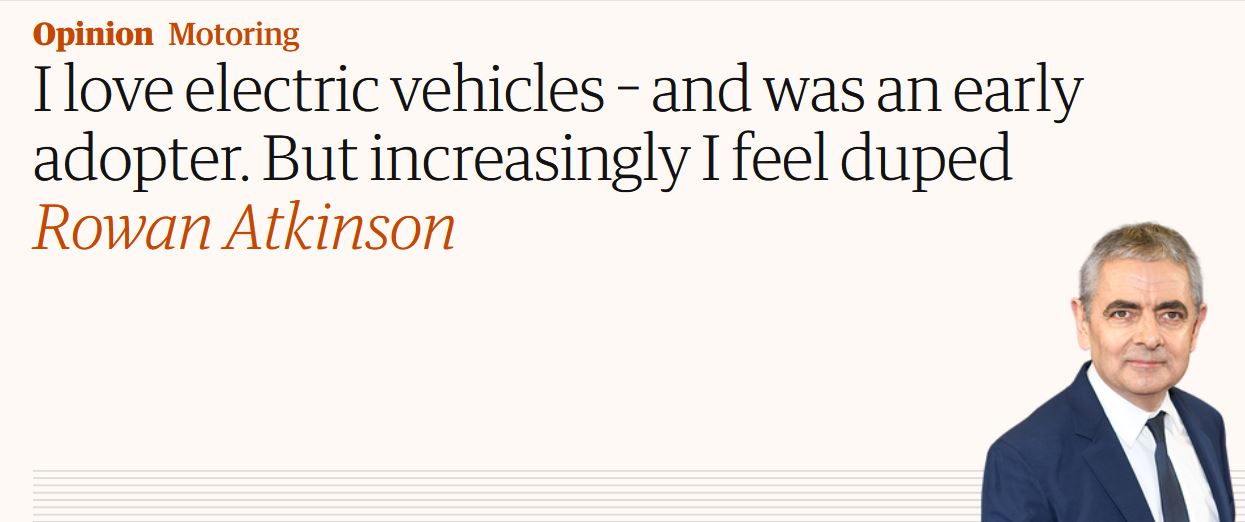
Electric motoring is, in theory, a subject about which I should know something. My first university degree was in electrical and electronic engineering, with a subsequent master’s in control systems.
I never knew that Mr. Bean is an engineer.
As you may know, the [British] government has proposed a ban on the sale of new petrol and diesel cars from 2030. The problem with the initiative is that it seems to be based on conclusions drawn from only one part of a car’s operating life: what comes out of the exhaust pipe.
Even people who seem pretty smart, fall for a type of magical thinking with regard to electric vehicles. It’s short-sighted to say that electric vehicles are “zero emission”. Batteries store energy, but the energy comes from somewhere. The generation of the energy has to count against electric cars, along with the loss of the electrical energy on the way from power plant to battery charger.
In advance of the Cop26 climate conference in Glasgow in 2021, Volvo released figures claiming that greenhouse gas emissions during production of an electric car are nearly 70% higher than when manufacturing a petrol one. How so? The problem lies with the lithium-ion batteries fitted currently to nearly all electric vehicles: they’re absurdly heavy, many rare earth metals and huge amounts of energy are required to make them, and they are estimated to last upwards of 10 years.
Good for Volvo for doing an honest analysis and releasing it prior to the climate conference. Cost is a good proxy for the amount of resources to produce something. Sure, there is supply-and-demand pricing, but there are a lot of options when it comes to cars.
Unsurprisingly, a lot of effort is going into finding something better. New, so-called solid-state batteries are being developed that should charge more quickly and could be about a third of the weight of the current ones – but they are years away from being on sale, by which time, of course, we will have made millions of overweight electric cars with rapidly obsolescing batteries.
The utility of a technology can’t be judged by a future development. That is also a type of magical thinking because it relies on a fantasy. In engineering, we learn that everything is a trade-off. Light-weight, fast charging solid state batteries might be developed, but what if they explode when bumped, cost a million dollars or emit toxic gases? We don’t know because they don’t exist. When people imagine solid state batteries, they don’t imagine a crippling weakness.
Also, if those batteries are developed, there may be other applications that are much more suitable.
The biggest problem we need to address in society’s relationship with the car is the “fast fashion” sales culture that has been the commercial template of the car industry for decades. Currently, on average we keep our new cars for only three years before selling them on, driven mainly by the ubiquitous three-year leasing model.
Atkins starts going off into the weeds, not recognizing that the value of the car still exists.
Increasingly, I’m feeling that our honeymoon with electric cars is coming to an end, and that’s no bad thing: we’re realising that a wider range of options need to be explored if we’re going to properly address the very serious environmental problems that our use of the motor car has created.
There should not be governmental policies to encourage the purchase of electric cars. If electricity was cheap and reliable, and electric cars the best choice, people would by them.